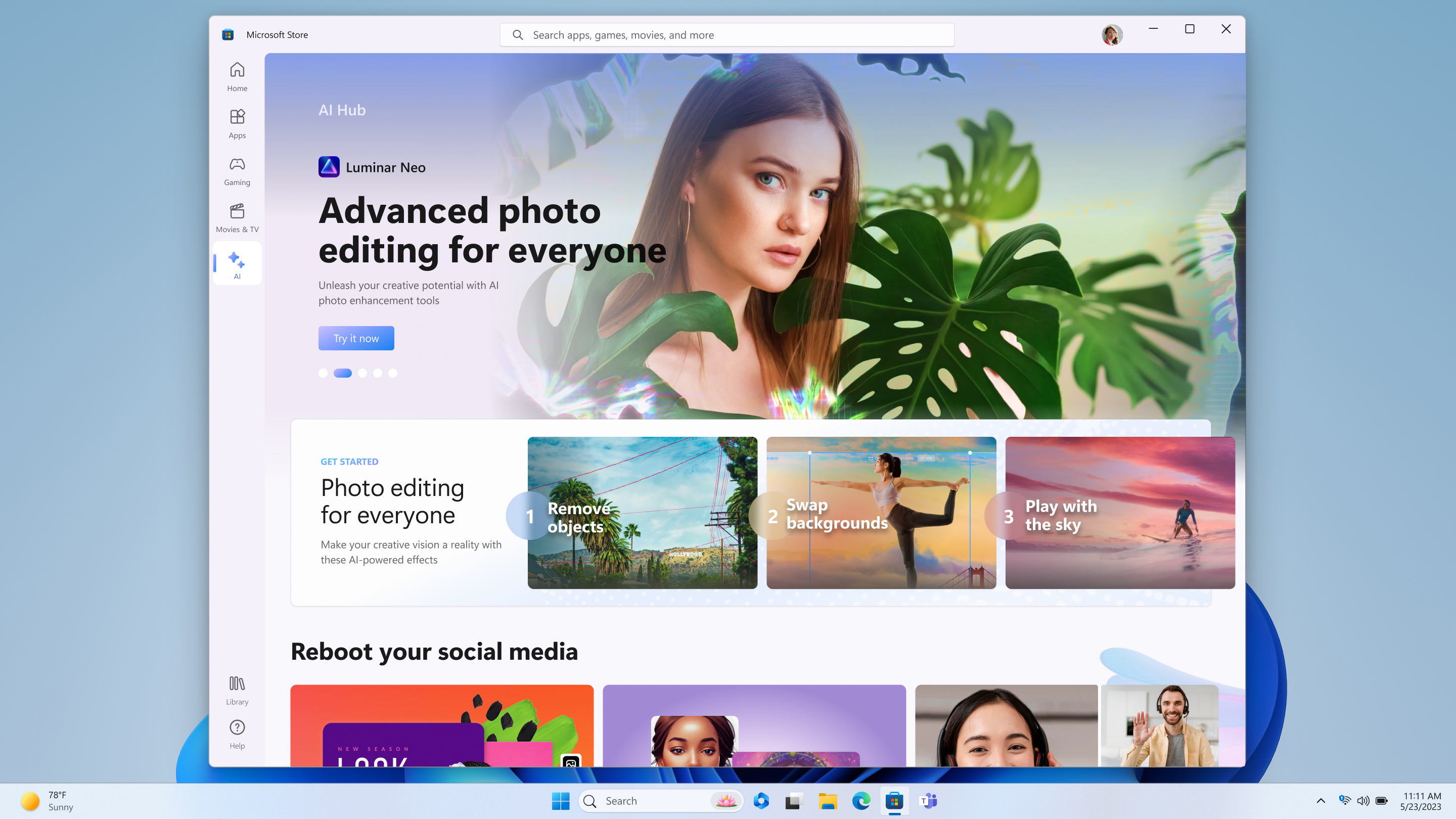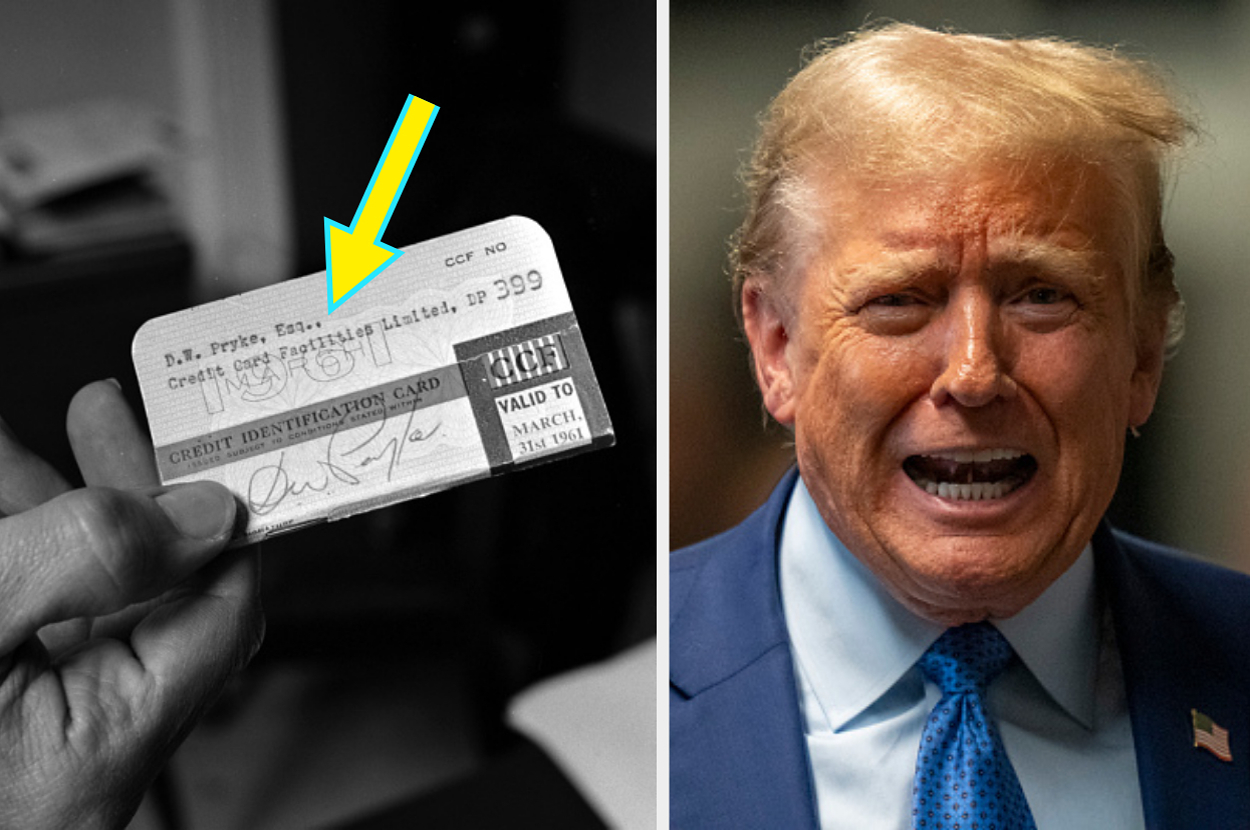In its early days, the Microsoft Store (which was previously known as the Windows Store), had a bit of a middling reputation, in part because it was full of low-quality tools. With the launch of Windows 11, Microsoft gave the store a major facelift and today, at its annual Build developer conference, it’s adding a number of new features to the store. Given where Microsoft as a whole is going, it’s no surprise that many of these new features center around AI. There’s a new section that highlights AI-centric apps, for example, new AI-generated review summaries and, coming soon, AI-generated tags in the partner center so developers can make their apps more discoverable.
 What’s maybe even more important than these relatively minor changes is the fact that Microsoft is using this opportunity to reintroduce the store to users. A lot has changed in the Windows ecosystem and the store — yet given that Windows users traditionally had a direct relationship with their software vendors, unmitigated by a central store, I’m sure most still bypass the store (I know I always forget it exists — and that’s also true for the Mac App Store for me).
What’s maybe even more important than these relatively minor changes is the fact that Microsoft is using this opportunity to reintroduce the store to users. A lot has changed in the Windows ecosystem and the store — yet given that Windows users traditionally had a direct relationship with their software vendors, unmitigated by a central store, I’m sure most still bypass the store (I know I always forget it exists — and that’s also true for the Mac App Store for me).
With launching the store on Windows 11, Microsoft made one crucial change: it opened up the store to all apps, whether they were native apps, progressive web apps, Android apps or Flutter apps. As Microsoft’s general manager of the Microsoft Store, Giorgio Sardo noted, Microsoft also allows app developers to either use its commerce platform or bring their own, keeping 100% of revenues.
“We’ve been on this journey now for two years and it’s interesting to reflect on how’s that going so far,” Sardo told me. “I’m quite excited. I’m proud of the momentum and the commitment we made to openness. I think that commitment to openness helps us create better products for end users and for the developers.”
He noted that just in the last year, the number of Win32 and Progressive Web Apps in the store doubled and a number of important apps, including WhatsApp, Adobe Express, TikTok, Disney+ and SnapChat are now available in the store. Sardo also noted that about 50% of users who buy a new Windows 11 device now use the store in the first 30 days.
With the new AI hub, Microsoft is introducing its first thematic hub in the apps’ prominent left sidebar. The other options there are apps (in general), games, movies and TV shows. Now, in the AI hub, the company is featuring apps like Luminar Neo, Lensa, Descript, Podcastl and Copy.ai. In part, that’s to capitalize on the overall hype around AI, but also to highlight that these kinds of app experiences are available on Windows and not only in mobile apps and on the web.
With this update, Microsoft is also announcing some changes to Microsoft Store Ads, which developers can now also opt to show on Bing.com for relevant search results and which will soon expand beyond the U.S. and to 150 regions worldwide.. In addition, they can now create high-impact ads that will appear in the spotlight section of the Microsoft Store (that is, the large featured section at the top of the store). This section supports video ads and is obviously one of the most prominent surfaces for these ads. Until now, the selection of apps here was an editorial choice by the Store Team, but now this gallery will include ads, too.
Microsoft puts a spotlight on AI in its Windows app store by Frederic Lardinois originally published on TechCrunch








